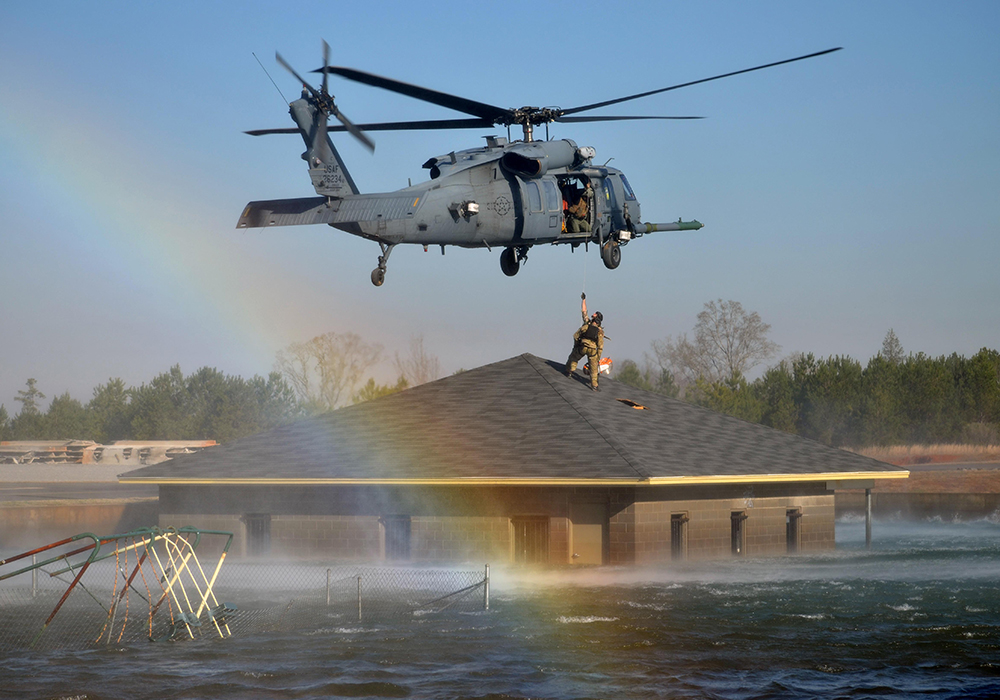By Stacy R. Stanifer, PhD, APRN, AOCNS®
Natural disasters present unique challenges to patients with cancer and the healthcare systems that must stand ready to keep them healthy. Exposure to floodwater places patients at risk for infectious diseases, chemical hazards, and injury, and anything in the water’s path, including medical equipment, medications, homes, and vehicles, can be severely damaged or destroyed. Patients with cancer who are immunocompromised are a highly vulnerable post-flooding population and need special guidance.
Prepare Your Patients to Maintain Cancer Care During Flooding
The rural, southeastern Kentucky area in which I practice recently experienced a catastrophic flooding event. To help our patients maintain access to care and prevent increased risk of infection, we quickly developed a tip sheet for patients.
For future events, healthcare providers can use the tips as talking points during patient education discussions. Because of natural disasters’ unpredictability, having information and tip sheets readily on hand can help keep patients on track with treatment and safe from potential exposures.
Patient Tip Sheet: What to Do in the Event of Flooding
- Contact your healthcare providers. Providers can help coordinate care to keep your cancer treatment on schedule and replace any medical equipment and medications that were lost or destroyed in floodwater. Additionally, ask your providers if you should be vaccinated for hepatitis A, hepatitis B, influenza, pneumonia, or tetanus.
- Check your medicines.
- The U.S. Food and Drug Administration advises throwing away medication that contacted floodwater. If the medication is hazardous (e.g., chemotherapy), bring it to your next appointment for proper disposal.
- If a medication needs to be made into a liquid, only use water you know is clean.
- If you lose power, refrigerated medication will generally remain cold for 12–24 hours with the refrigerator door closed. After 24 hours, find another source of refrigeration or use clean ice and a cooler until power is restored. Discard refrigerated medications that have not been kept cold after 24 hours.
- If you evacuate to an emergency shelter, talk with the shelter director about the need to safely store your prescription medicine.
- Reduce your risk of infections. Floodwater may contain sewage or chemicals and expose you to viruses, bacteria, mosquitos, parasites, and mold. Follow neutropenic precautions during a flood, including frequent handwashing, mask wearing, and skin care; use mosquito repellent; and avoid mold and contaminated water. If you must enter floodwater, wear rubber boots, rubber gloves, and googles. Seek emergency care if you are experiencing signs or symptoms of an infection.
- Check your food and water. Floods can leave harmful bacteria and chemicals on nearly every surface and contaminate drinking water. Throw away any food in the refrigerator or freezer after a power loss of more than 24 hours. Avoid foods that floodwater has touched and food from gardens that have been flooded. Follow the Centers for Disease Control and Prevention’s guidance on how to clean and sanitize food-contact surfaces (e.g., countertops, tables) that have been flooded. Consult your local guidance on whether your water supply is safe; avoid unsafe water for drinking, cooking, bathing, brushing your teeth, or washing your hands.
- Avoid mold. If your home sustains water damage during flooding, dry it out as soon as possible to prevent mold growth. If you are immunocompromised, do not enter your home if it contains mold; rather, ask for help or hire a qualified professional to remove it. If you cannot avoid mold, protect you mouth and nose with an N95 mask and protect your skin and eyes with long-sleeve shirts, full-length pants, gloves, and goggles. After leaving a structure with mold, shower and change your clothes right away. Contact your healthcare provider immediately if you have been exposed to mold and develop symptoms such as fever and cough that are not getting better with treatment.
- Take care of your emotional well-being. After experiencing a flood, it is natural to feel stress, anxiety, sadness, and worry. Connect with others and ask your healthcare provider, counselor, or spiritual leader for help if you are feeling overwhelmed with emotions.
This article was supported by UK-CARES through Grant P30 ES026529. Its contents are solely the responsibility of the authors and do not necessarily represent the official views of the NIEHS.
The author thanks the University of Kentucky Markey Cancer Center Community Impact Office and Center for Excellence in Rural Health and ONS members Holly Chitwood, Ryne Wilson, and Milagros Elia for their input on the development of the patient tip sheet.






